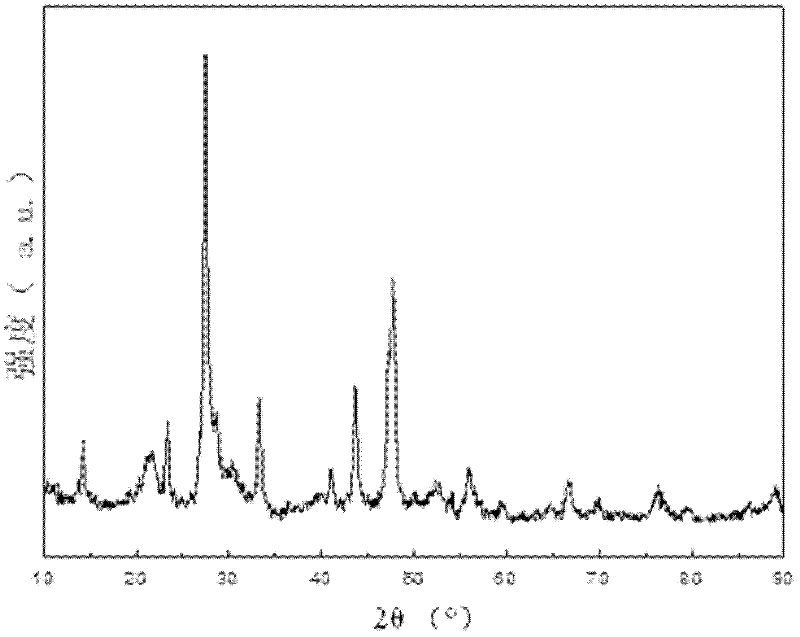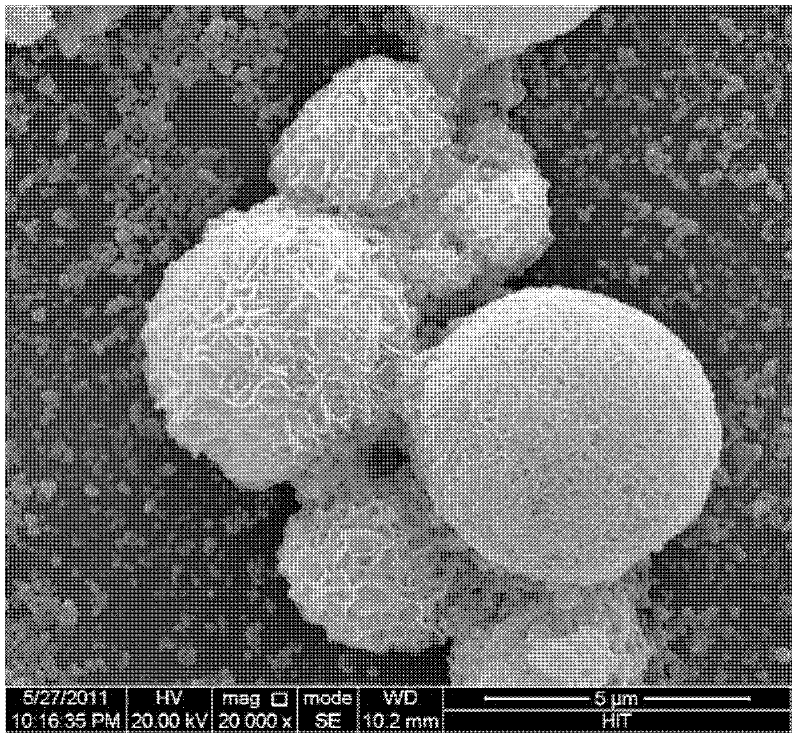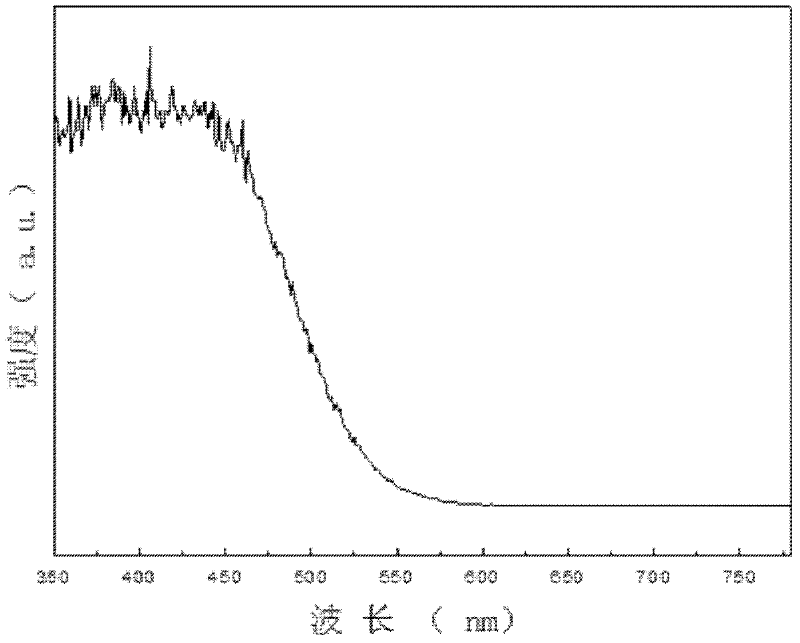Indium-based sulfide composite photocatalyst and preparation method thereof
A technology of sulfide and composite light, which is applied in the direction of physical/chemical process catalysts, chemical instruments and methods, chemical/physical processes, etc., can solve the problem of low hydrogen production of ternary indium-based sulfides, and achieve good product dispersion, Good crystallinity, avoiding structural defects and the effect of introducing impurities
- Summary
- Abstract
- Description
- Claims
- Application Information
AI Technical Summary
Problems solved by technology
Method used
Image
Examples
specific Embodiment approach 1
[0014] Embodiment 1: The indium-based sulfide composite photocatalyst of this embodiment is made by a one-step hydrothermal method using cadmium salt, zinc salt, indium salt and sulfur source compound, wherein Cd 2+ with Zn 2+ The molar ratio of Cd is 0.11~0.43:1, Cd 2+ with Zn 2+ The sum of the number of moles and In 3+ The molar ratio of Cd is 1:2, Cd 2+ with Zn 2+ The ratio of the sum of the moles of the sulfur source compound to the moles of the sulfur source compound is 1:8.
[0015] The indium-based sulfide composite photocatalyst of this embodiment has better visible light response, and has a strong absorption at about 550nm, and at the same time, the indium-based sulfide composite photocatalyst exhibits higher performance of splitting water to produce hydrogen under visible light , under the light irradiation of λ>400nm, the hydrogen production amount reached 32000μmol·h -1 g -1 ~37000μmol·h -1 g -1 , and the activity of the catalyst did not decrease significa...
specific Embodiment approach 2
[0016] Specific embodiment two: the difference between this embodiment and specific embodiment one is that Cd 2+ with Zn 2+ The molar ratio is 0.15~0.40:1. Others are the same as in the first embodiment.
[0017] More preferred Cd in this embodiment 2+ with Zn 2+ The molar ratio is 0.20:1.
specific Embodiment approach 3
[0018] Embodiment 3: This embodiment differs from Embodiment 1 or Embodiment 2 in that the cadmium salt is cadmium chloride, cadmium nitrate, cadmium sulfate or cadmium acetate. Others are the same as in the first or second embodiment.
PUM
| Property | Measurement | Unit |
|---|---|---|
| diameter | aaaaa | aaaaa |
| thickness | aaaaa | aaaaa |
Abstract
Description
Claims
Application Information
 Login to View More
Login to View More - R&D
- Intellectual Property
- Life Sciences
- Materials
- Tech Scout
- Unparalleled Data Quality
- Higher Quality Content
- 60% Fewer Hallucinations
Browse by: Latest US Patents, China's latest patents, Technical Efficacy Thesaurus, Application Domain, Technology Topic, Popular Technical Reports.
© 2025 PatSnap. All rights reserved.Legal|Privacy policy|Modern Slavery Act Transparency Statement|Sitemap|About US| Contact US: help@patsnap.com



